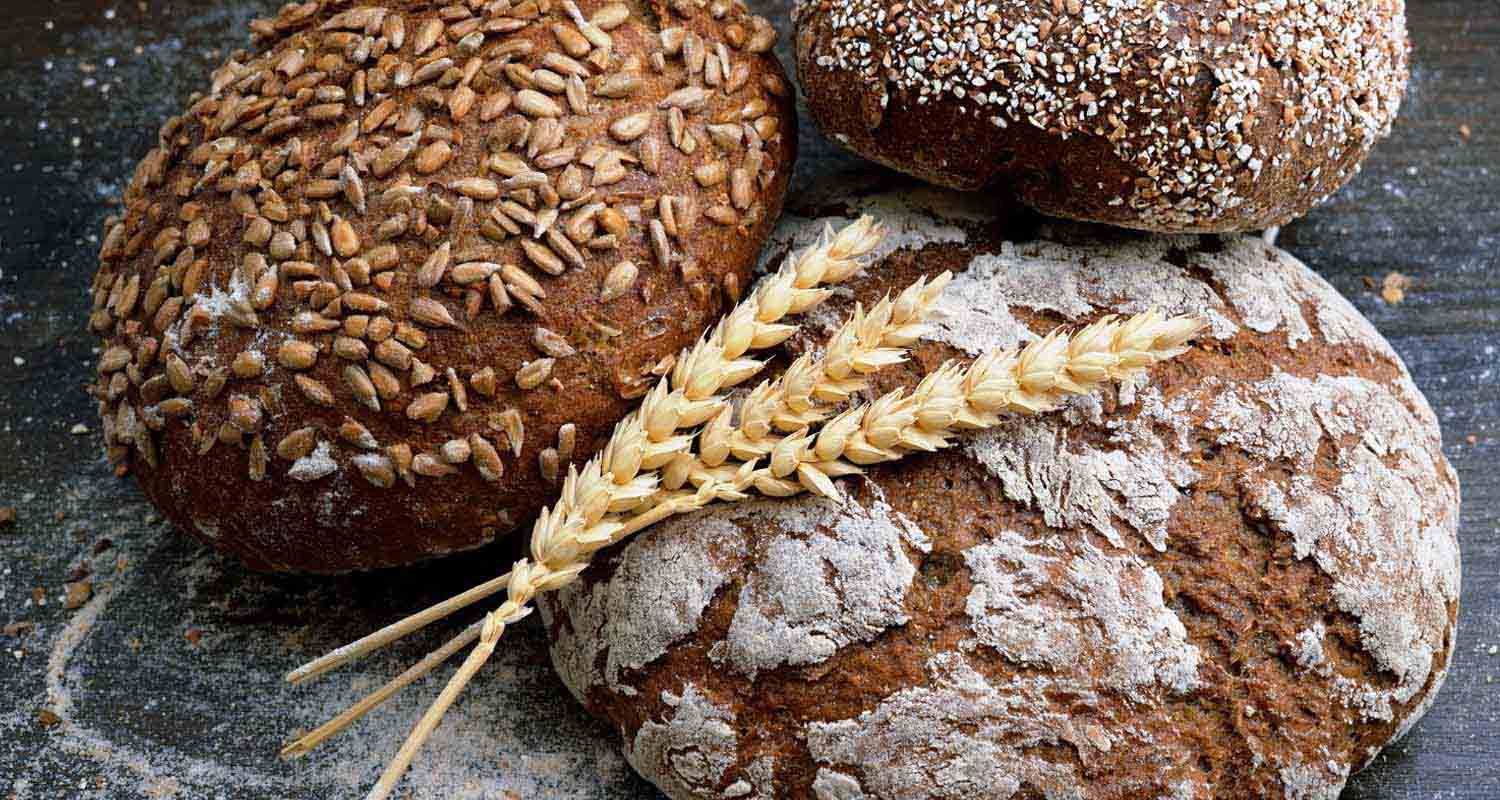
Content provided by Brent Totty
- Even though a gluten-free lifestyle is increasingly common, there’s still a lot of confusion around gluten and the benefits of cutting it from your diet.
- Between 30 to 60 percent of the population has undiagnosed issues with gluten that contribute to conditions like arthritis and inflammation.
- Gluten is a type of lectin, an anti-nutrient found in grains and legumes that saps nutrients from your body.
- Cutting gluten, and grains in general, from your diet will lower inflammation and get rid of common symptoms like brain fog, joint pain, and skin issues like eczema.
Today, it’s almost surprising if you don’t know at least one person who is gluten-free. Over the past decade, millions of Americans have opted to follow a gluten-free diet. Still, despite its popularity (or more accurately, unpopularity), major confusion around this wheat protein abounds.
Though the gluten-free diet began as a treatment for people with celiac disease, an autoimmune disorder where gluten leads to damage in the small intestine, it’s now considered the most popular diet in Hollywood. According to Tom O’Bryan DC, CCN, DACBN, a world-renowned expert in the field of gluten-related disorders, between 30 and 60 percent of the population have undiagnosed issues with gluten that contribute to conditions like arthritis and inflammation. So whether you’re celiac, non-celiac gluten-sensitive or completely fine ingesting gluten, there are some basic truths that come along with removing gluten from your diet — namely, a host of health benefits.
Related: Gluten Sensitivity, Celiacs & Bulletproofing Your Gut
Read on to find out how going gluten-free can improve your body and upgrade your performance.
What is gluten, anyway?
To understand what gluten is, it’s helpful to know what a lectin is. Lectins are proteins found in legumes and grains designed to be nature’s defense system for plants. These proteins bind to receptor cells in your body and wreak all sorts of havoc on the human digestion and hormonal system.[ref url=”http://www.mdpi.com/2072-6643/5/3/771″] Gluten is one type of the lectin most commonly found in grains, and though it’s public enemy number one among some health experts, it’s not the only culprit that saps nutrients from your body and damages the gut wall.
Related: How Lectins Suck Your Energy and Make You Sick
When you take wheat out of your diet, you remove the largest source of gluten in the standard American diet while also eradicating some of the not-so-well-known dietary villains like wheat germ agglutinin or WGA. WGA is found in the hull of most grains and is a substantially smaller particle than gluten, making it easier for it to pass through the human intestinal wall (not a good thing). Anything labeled “whole grain” is full of WGA and usually means that you should take a hard pass when you select what to eat on a day-to-day basis. Likewise, wheat isn’t the only source of gluten. It’s also found in barley, rye, malt, brewer’s yeast and wheat derivatives like spelt, farro and semolina.
Tip: Order white rice over brown rice to skip the WGA
Is a gluten-free diet unhealthy?
You’ve likely heard the argument that a gluten-free diet is unhealthy. The truth of the matter is, any diet in the wrong hands can be unhealthy. There are healthy and unhealthy ways to be gluten-free. Because of the high demand for gluten-free alternatives, food manufacturers market gluten-free baked products like breads, pasta, cereal, and cookies that are made with junk carbohydrates and loads of sugar. These products also swap out gluten and yeast for transglutaminase,[ref url=”https://www.nature.com/articles/nm0797-797″] more fondly referred to as meat glue, to emulate the fluffiness of its gluten-laden counterparts.
There are a few gluten-free replacement food products on the market that are better than others, but to be your best self, use gluten-free breads, cakes, and pastas as sparingly as possible. You can also make this three-ingredient Bulletproof Bread recipe that’s low-carb and keto-friendly.
Tip: Use thinly sliced yams or sweet potatoes as bread substitutes.
What are the benefits to going gluten-free?
So when cutting out gluten, WGA and highly processed gluten-free substitutes, what can you expect? Bombarding your body with these lectins or lectin-containing products promotes systemic bodily inflammation, which directly affects the way all of your body systems communicate. When people eat grains as part of their diet, their nervous, muscular, lymphatic, digestive, and endocrine systems all function at a fraction of their potential.[ref url=”http://www.mdpi.com/2072-6643/8/10/644″]
Gluten and brain fog
Among people who have problems with gluten and grains, brain fog is a common symptom. People with brain fog — the inability to focus, complete tasks, or recall certain things in conversation — often report being tired after getting out of bed in the morning. If you’ve ever been in a conversation and were unable to recall a certain word or event, you’ve experienced brain fog.[ref url=”https://www.ncbi.nlm.nih.gov/pubmed/8598704″]
Gluten and joint pain
Low levels of systemic inflammation in the body often manifests itself in joint pain, weakened ligaments and slowed muscular recovery. When your body isn’t perpetually inflamed, its acute inflammatory response is much more efficient. If you are an athlete, this is imperative. The shorter the required recovery period, the faster you are back on the field. Same goes for anyone who enjoys being mobile and pain-free. You don’t have to be a professional athlete or weekend warrior to enjoy the benefits of moving painlessly through your day.
Gluten and weight
Nutrient malabsorption causes many celiacs to lose weight, due to microscopic tears in their intestinal lining, also known as leaky gut. Removing gluten from their diets allows the gut to heal properly, which ultimately restores their ability to absorb nutrients from the foods they eat. For those of us who are gluten-sensitive, removing gluten lowers overall body inflammation allows the hormones that control our metabolism to normalize. With metabolism normalized and hunger hormones in check, non-celiacs tend to lose the weight that constant bombardment of gluten laden carbohydrates puts onto their bodies.[ref url=”http://www.mdpi.com/2072-6643/5/3/771″]
Gluten and bloating
Gluten causes damage to the intestinal wall which leads to GI symptoms like gas and bloating. Removing gluten from your diet allows the damaged intestinal villi to heal, which also gets rid of gastrointestinal bloating and distress.[ref url=”http://www.mdpi.com/2072-6643/9/3/213″]
Gluten and skin
Your skin often tells the story of what is going on much deeper in the body. Inflammation caused by gluten takes the form of blemishes, acne, and eczema.[ref url=”https://www.ncbi.nlm.nih.gov/pmc/articles/PMC3369470/”] After removing inflammatory gluten and grains, the health of your skin tends to turn around in the following few weeks.
Avoiding gluten is a first major step towards lowering inflammation in the body and gaining back the performance that your body was always capable of.
Read Next: The Complete Bulletproof Guide to Gluten and Grains








